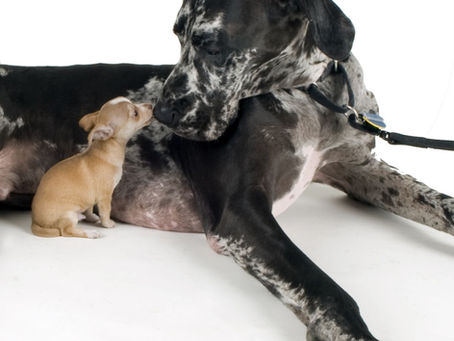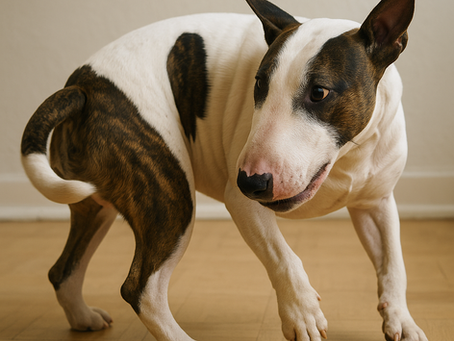top of page

Behavior


Fear of Strangers in Dogs—What a New Study Found
Researchers studied 124 Great Danes (Finland) and found a DNA “hot spot” on chromosome 11 linked to dogs who are more fearful of unfamiliar people. They used a validated owner survey to score each dog’s “stranger-fear” on a scale (controls scored 0; cases scored >0). They also calculated a socialization score based on experiences from 7 weeks to 3 months of age, because early exposure strongly shapes confidence. Even after accounting for socialization, the genetic signal on c
-
Oct 202 min read


Training the Dog in Front of You. Genes whisper. Daily life shouts.*
Behavior comes from many tiny genetic effects plus everything the dog experiences. You’ll get farther, faster by building routines that meet needs for safety, predictability, mental work, and rest, no matter the breed.
-
Sep 232 min read


Why Dog Breeds Don’t Define Behavior*
Stereotypes are catchy. Real dogs are messy and wonderful. The short story It’s tempting to assume a breed is a personality: Labs are...
-
Sep 192 min read


Why Do Some Dogs Develop Repetitive Behaviors?*
A new study of nearly 4,500 dogs reveals the “why” behind spinning, tail chasing, shadow staring, and other repetitive habits. Researchers found that age, exercise, social environment, guardian experience, and even genetics all play a role. While some quirks are harmless, others can signal stress, boredom, or frustration.
-
Sep 172 min read
bottom of page